Focus
Your Present Location: HOME> Focus-
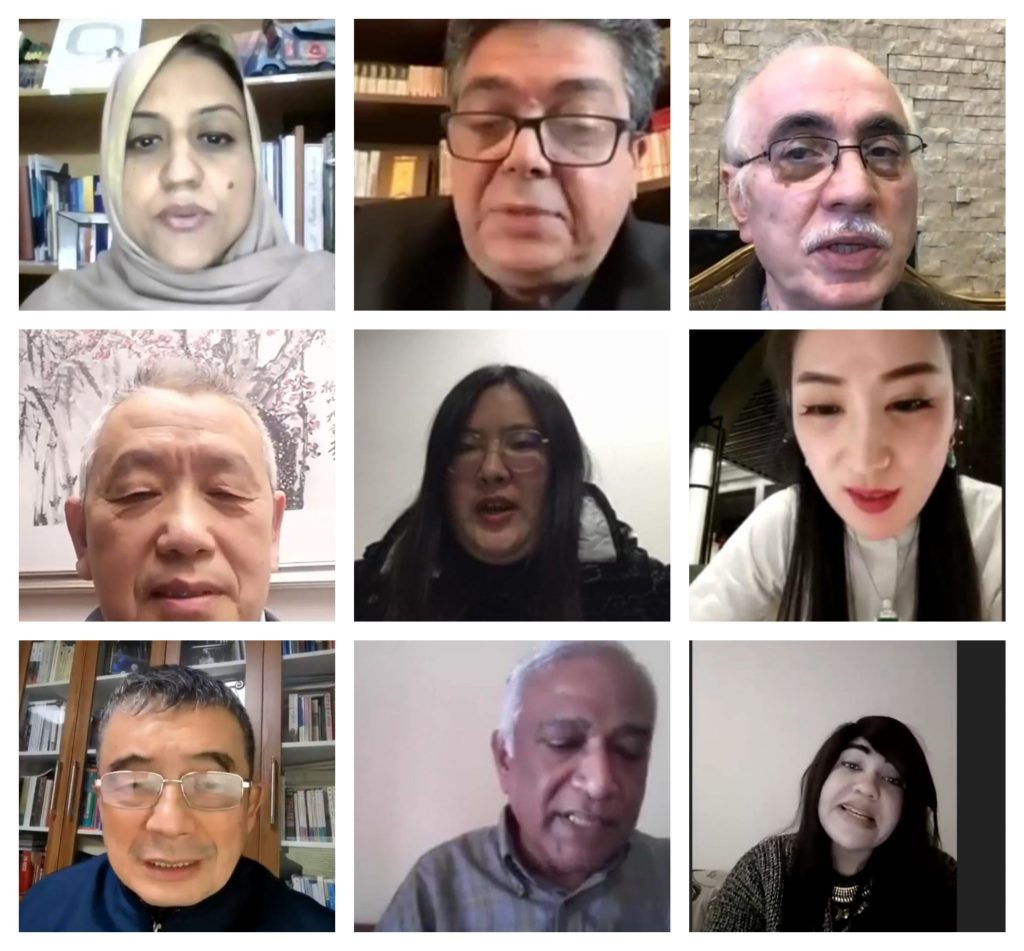
Zhou Rong: Winter Olympic Games promote Peace, Harmony & Togetherness
Islamabad, 16 February 2022 (TDI): Winter Olympics is an opportunity for the world to build and give peace a chance. There should not be any politics in sports as these games are to learn to coexist and develop a shared future for mankind.
2022-02-18 -
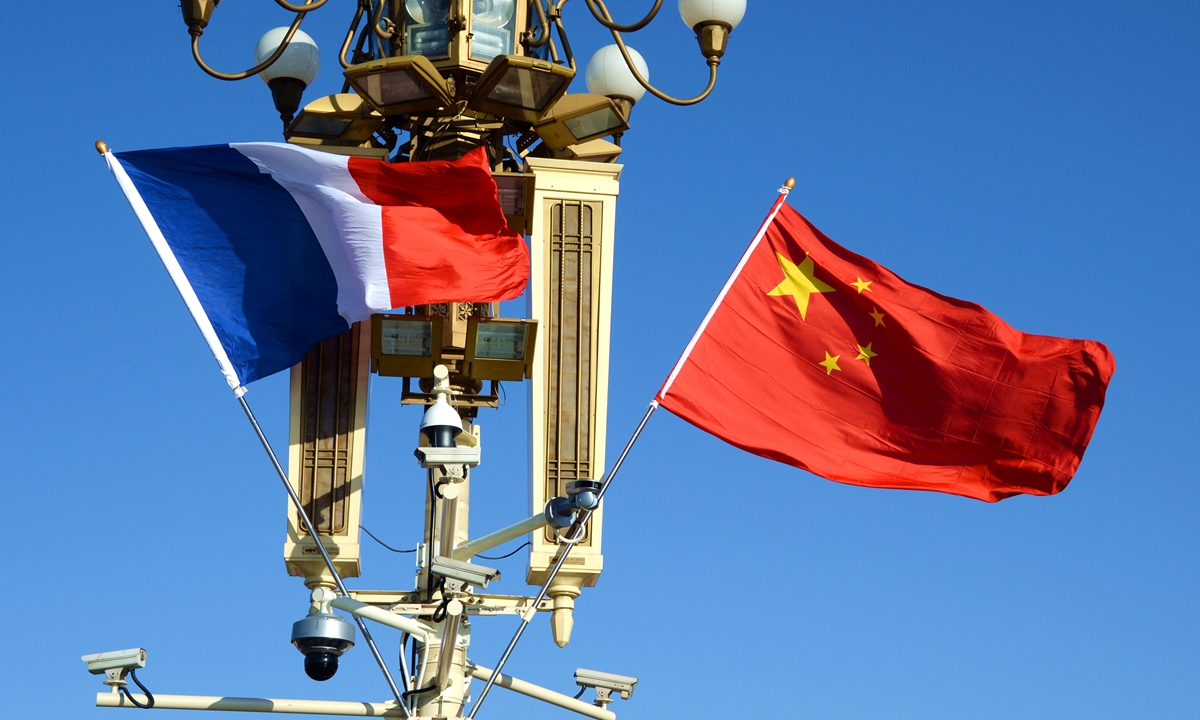
Zhou Rong: China, France deepen RMB Cross-Border Interbank Payment System cooperation
The cooperation between China and France on the RMB Cross-Border Interbank Payment System will help with internationalization of the yuan and will also provide an opportunity for the eurozone to reduce its reliance on the US dollar, experts said.
2022-02-18 -
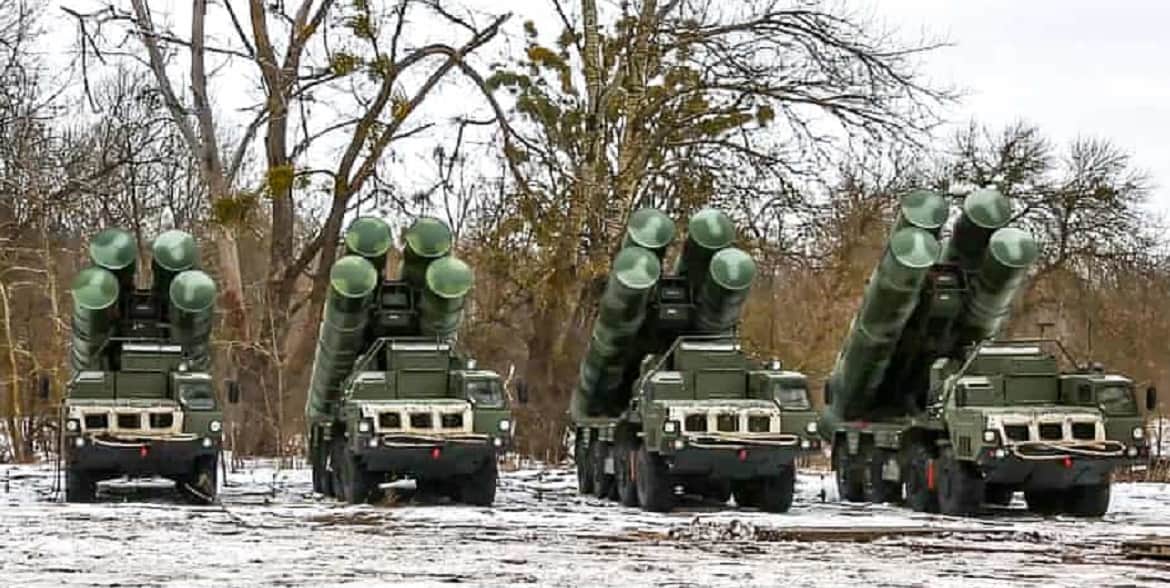
Zamir Ahmed Awan: Appeal to avert Ukraine crisis
It seems diplomacy failed and the Ukraine crisis is heading toward human disaster. President Putting blames the US for creating a situation where human disaster is unavoidable, while the US is threatening Russia on the Ukraine issue.
2022-02-17 -
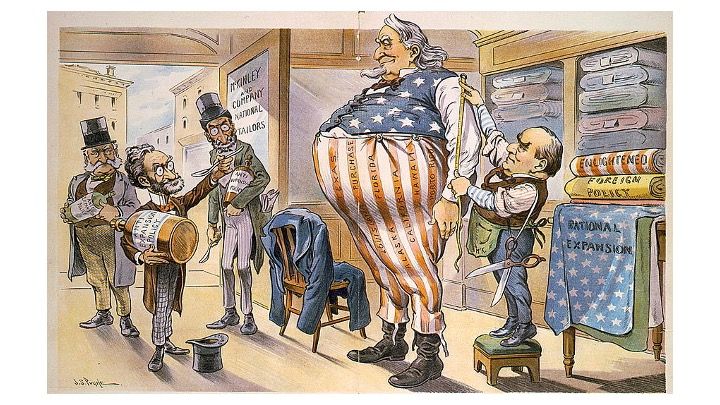
Francis Fukuyama: The Administrative State
One of the most long-standing complaints of American conservatives concerns the emergence, growth, and spreading mandates of the so-called “administrative state.” The Trump administration framed this in a typically crude way as the malign “deep state” of unelected bureaucrats doing the bidding of shadowy elites against the interests of ordinary Americans. Trump and his advisors like Steve Bannon vowed that they would smash the deep state as their first order of business.
2022-02-17 -
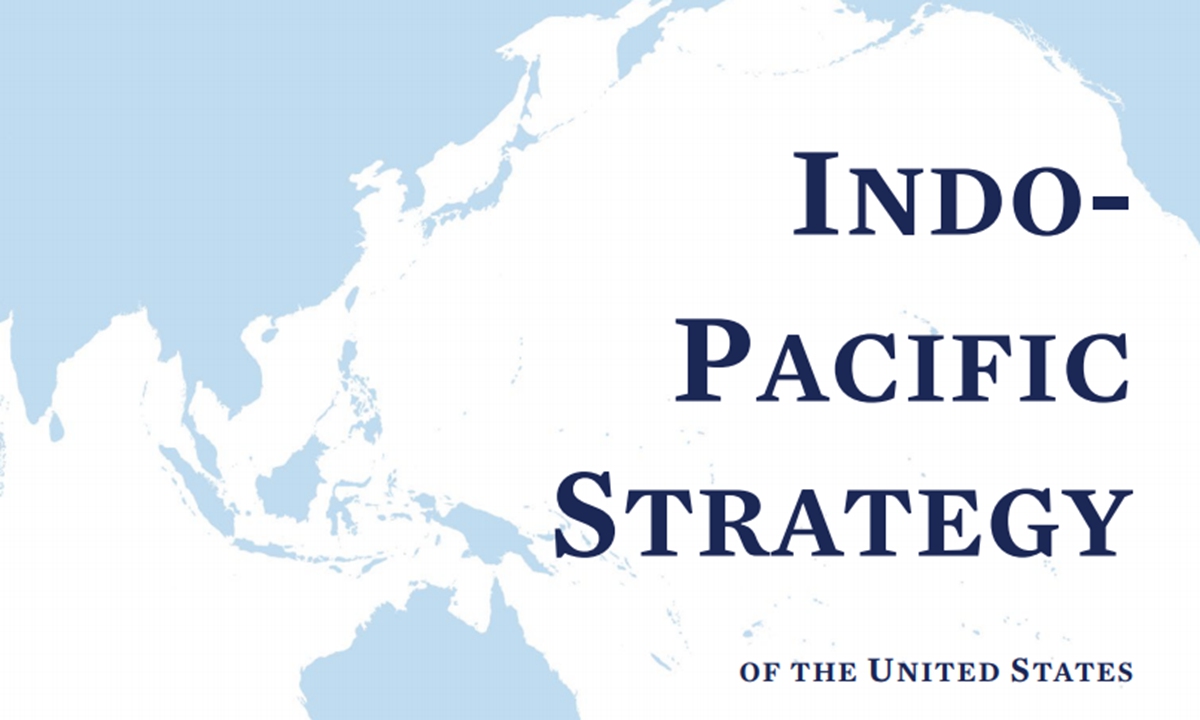
Ding Gang: Targeting China makes US Indo-Pacific Strategy goals unachievable
A year after Biden took office, the US released its much-anticipated US Indo-Pacific Strategy on February 11. It is a report drenched in poison.
2022-02-17 -
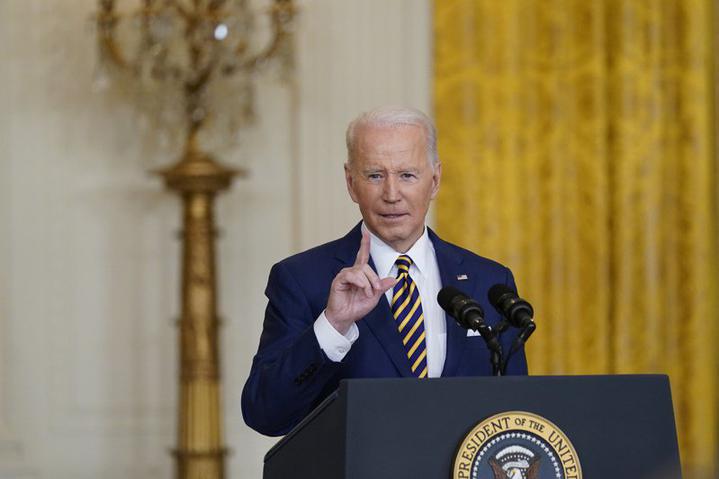
Zamir Ahmed Awan: Criticism on President Joe Biden’s decision to avert Afghan assets to victims of 9/11
President Joe Biden signed an executive order allowing $7 billion in frozen assets from Afghanistan's central bank to eventually be distributed inside the country and to potentially fund litigation brought by families of victims of the September 11 terror attacks, senior administration officials confirmed Friday.
2022-02-16 -
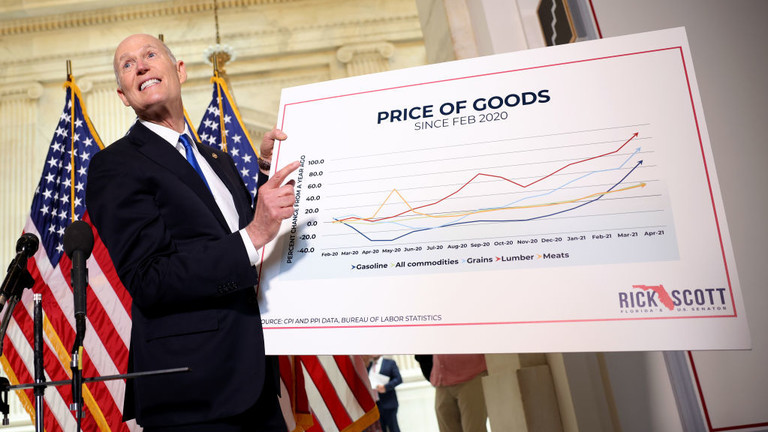
John Ross: China 3 USA 0 – Beijing inflicts a severe economic defeat on America
The news that US inflation has reached its highest level for 40 years, at 7.5% in January, is the most explicit indicator of serious problems in its economy. The monetary tightening that will be used to attempt to bring this under control will both slow the US economy and inevitably spill over into major effects on the world economy.
2022-02-16 -

Grzegorz W. Kołodko: From arms to bridges
The time must come when the ruling elites will be able to draw the obvious conclusion that there is a need to cut deeply military spending, and redirect the military-related financial means to counteract global warming and coordinate economic activities to limit the areas of economic and social exclusion.
2022-02-16 -
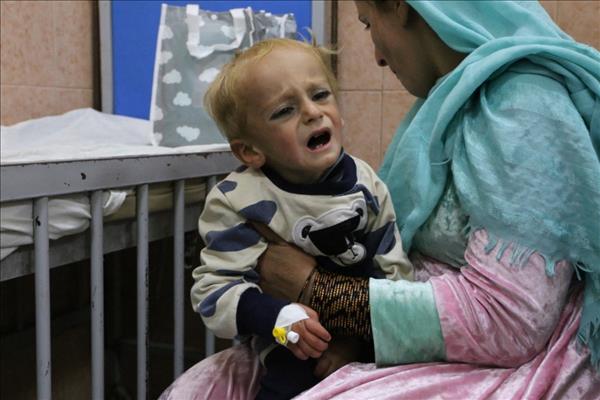
Vijay Prashad: Terrible fate faces the Afghan people
On February 8, UNICEF Afghanistan sent out a bleak set of tweets. One of the tweets, which included a photograph of a child lying in a hospital bed with her mother seated beside her, said :“Having recently recovered from acute watery diarrhea, two-year-old Soria is back in hospital, this time suffering from edema and wasting. Her mother has been by her bedside for the past two weeks anxiously waiting for Soria to recover.”
2022-02-16 -

Diao Daming: Giant panda new ‘evil’ to US anti-China lawmakers
2022-02-15 -
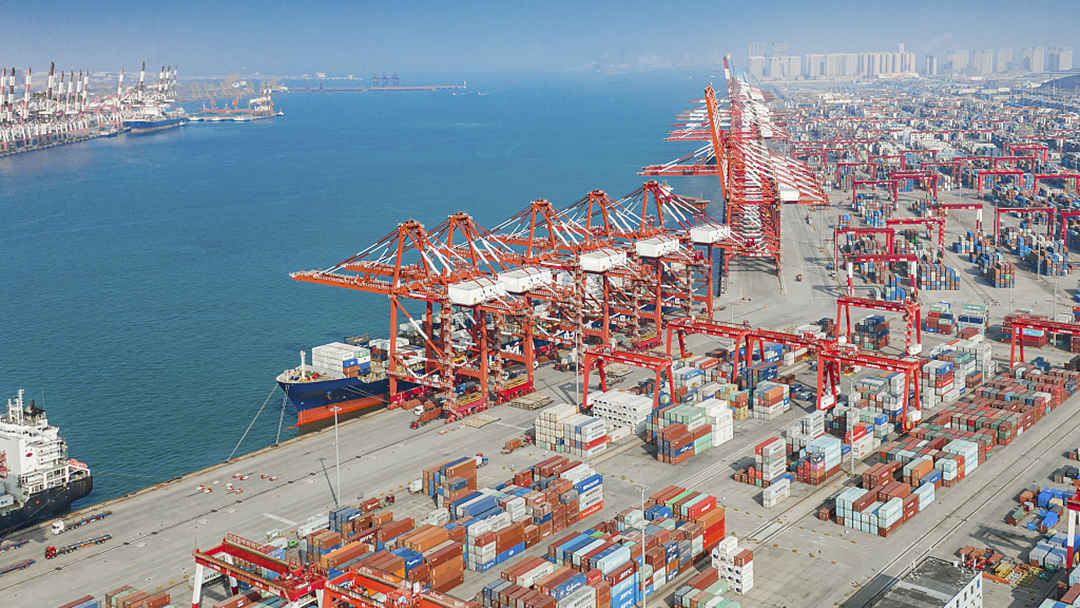
He Weiwen: Unilateral actions violate China-U.S. phase-one trade deal
Reuters recently quoted an official of a leading U.S. business group as saying that as "Chinese haven't met their commitment in phase one," Washington will consider a range of trade measures against China, including the resumption of "Section 301" investigation.
2022-02-15 -
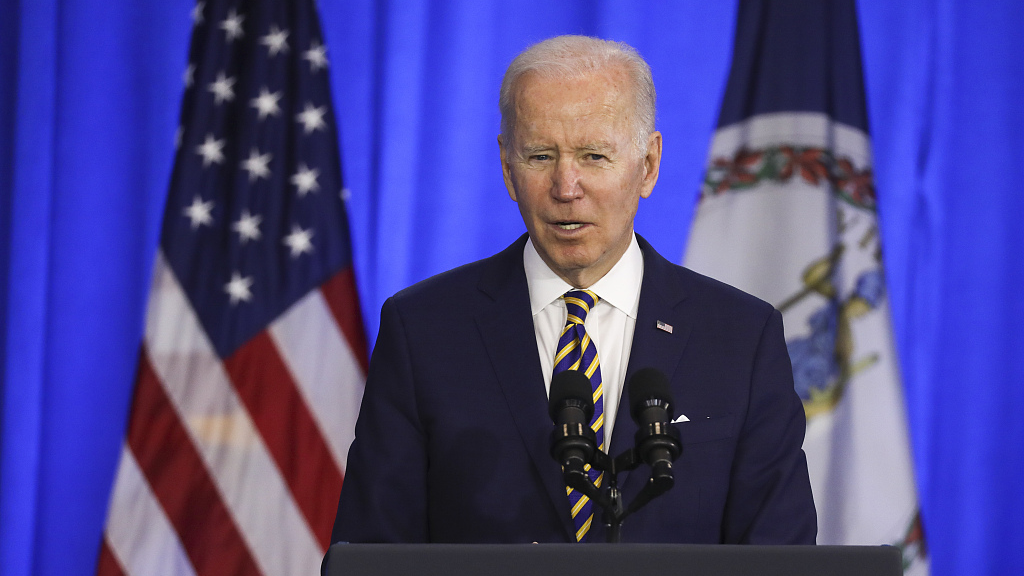
William Jones: Biden's Indo-Pacific strategy will finally fail
If there was any doubt in anybody's mind regarding the policy of the U.S. government toward China, the issuance of the formal "Indo-Pacific Strategy" by the White House on February 11 makes the point crystal clear: the Joe Biden administration intends to build a wall of containment around China.
2022-02-14 -

William Jones: Fostering the Olympic spirit in a strife-ridden world
While NATO and the Western countries have sent more troops to the borders of Russia and phony rumors of war proliferate in the Western media, reminiscent of the gladiatorial spirit of the ancient Roman Empire, in China the humanist spirit of the ancient Greeks is being revived in the Beijing Winter Olympics, that successor to the noble Greek pastime in which athletes from all Greek city-states would come together under the Olympic Truce to demonstrate their physical prowess in peaceful endeavors attempting to achieve the wreath of victory based on the highest achievements.
2022-02-14 -

William Jones: All eyes on China during Winter Olympics
2022-02-14 -

Zamir Ahmed Awan: Beijing Winter Olympics promoted global understanding and harmony
Sports are to promote understanding and harmony among nations and cultures. Sportspersons are true ambassadors of friendship, peace, and global unity. Olympics started with the same spirit. Beijing Winter Olympics 2022, were no exception. It was witnessed at Beijing Winter Olympics that there is no better translation of the friendship and universal vision and dreams of mankind than the Olympic spirit of friendly competition and respect among the nations.
2022-02-14 -

Jean-Guy Carrier: Beijing 2022 Olympics and Paralympics: Win-win for participants and all
The achievements of athletes such as Gu Ailing and her counterparts from around the world at Beijing 2022 are a testament to the enduring spirit of the Olympic Games, and their ability to inspire us all.
2022-02-14 -
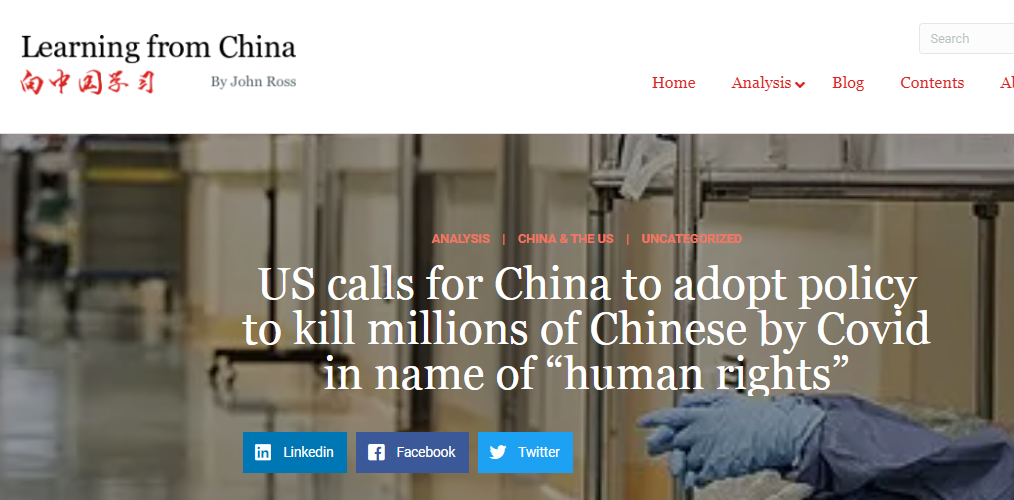
John Ross: US calls for China to adopt policy to kill millions of Chinese by Covid in name of “human rights”
Few issues show more clearly the real difference between the pro-human oriented policies of socialism in China and pro-capital oriented policies of the U.S. than the two countries response to the Covid pandemic. The U.S., while verbally proclaiming support for “human rights”, is actively campaigning for a policy that would already have led to 3.6 million Chinese people being dead and would result in more than two million more dying in 2022. That is the factual meaning of the U.S. call for China to abandon its “Zero Covid” policy. To be more precise, the U.S. in the name of “human rights” is calling for a policy that would kill 6.4 million Chinese people by the end of this year – that is, the U.S. is calling for a slaughter of millions of Chinese people in the name of “human rights”
2022-02-11 -

Ding Gang: Olympics showcase China as a green development trailblazer
The wonderful appearance of LEDs during the opening ceremony of the Beijing Winter Olympics reminded me of the 2008 Summer Olympics in Beijing. That opening ceremony used a ground-level LED screen, 3,234 square meters in area, but many parts, especially key components, were imported from abroad.
2022-02-11 -

【BOL】Zhou Rong: China eyes Central Asian stability
Chinese President Xi Jinping said China is ready to work with Central Asian countries and pledged to build a cooperation belt for high-quality development, strengthen the shield for defending peace, diversify interaction mechanisms and offer assistance to advance the Global Development Initiative.
2022-02-11 -
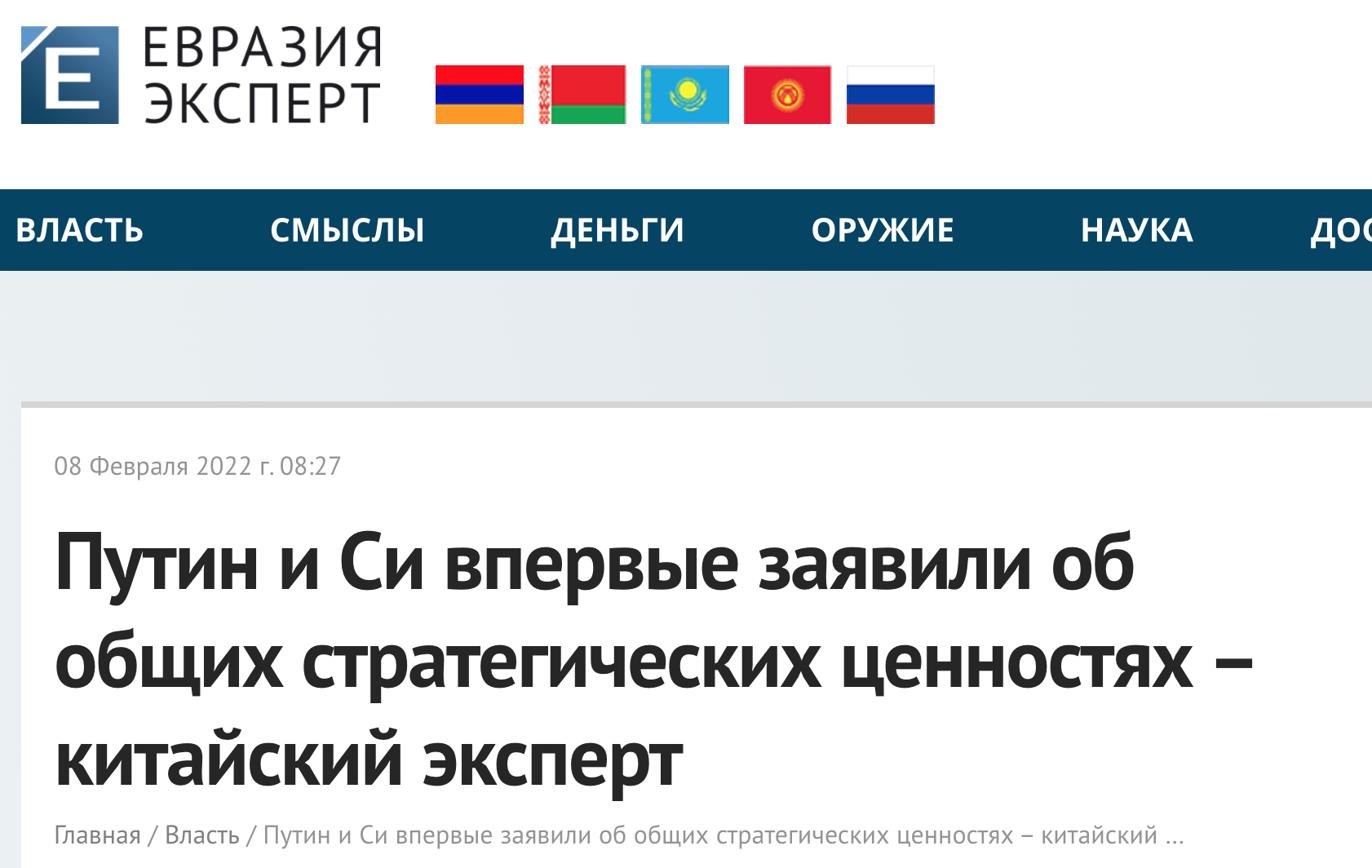
Wang Wen: Interview with Eurasia EXPERT
Eurasia EXPERT:Russian President Vladimir Putin wrote an article for the Chinese news agency Xinhua, in which he spoke about partnership and the future in relations between Russia and China. The article "Russia and China: a strategic partnership oriented towards the future" was published on the eve of the Russian leader's visit to Beijing. How would you evaluate the article of the President of Russia? How was this article received in China? What main theses could you single out from his article?
2022-02-10
























































































 京公网安备 11010802037854号
京公网安备 11010802037854号





